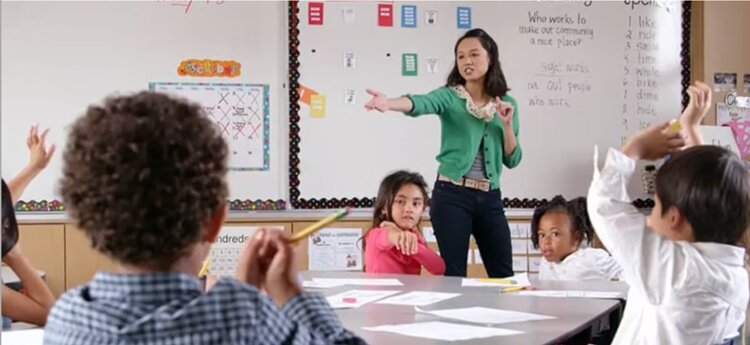Can Teachers Pray ?
Educators in public schools have more rights than you may think.
Public School Educators Can Pray at School
The U.S. Dept. of Education regularly publishes Guidance on Constitutionally Protected Prayer and Religious Expression in Public Elementary and Secondary Schools.
This Guidance was updated on May 15, 2023 to, in part, reflect the “Coach Kennedy” decision of the U.S. Supreme Court – where the Court required a school district to respect a football coach’s right to pray privately on the field after the games he coached. The Guidance notes, in particular, in Section I.C that:
“[N]ot everything that a public school teacher, coach, or other official says in the workplace constitutes governmental speech, and schools have less leeway to regulate employees’ genuinely private expression. . . . In contexts where a school permits teachers, coaches, and other employees to engage in personal speech . . . it may not prohibit those employees from engaging in prayer merely because it is religious or because some observers, including students, might misperceive the school as endorsing that expression.”
The more generally applicable guidance for educators is in Section II.C of the Guidance:
“Teachers, school administrators, and other school employees may not encourage or discourage private prayer or other religious activity.
The Constitution does not, however, prohibit school employees themselves from engaging in private prayer during the workday where they are not acting in their official capacities and where their prayer does not result in any coercion of students. Before school or during breaks, for instance, teachers may meet with other teachers for prayer or religious study to the same extent that they may engage in other conversation or nonreligious activities. School employees may also engage in private religious expression or brief personal religious observance during such times, subject to the same neutral rules the school applies to other private conduct by its employees. Employees engaging in such expression or observance may not, however, compel, coerce, persuade, or encourage students to join in the employee’s prayer or other religious activity, and a school may take reasonable measures to ensure that students are not pressured or encouraged to join in the private prayer of their teachers or coaches.
School employees may participate in their personal capacities in privately sponsored baccalaureate ceremonies or similar events.”
Public School Educators Can Teach About Religion
According to Section III. B of the US Dept. of Education Guidance:
“Public schools may not provide religious instruction, but they may teach about religion and promote religious liberty and respect for the religious views (or lack thereof) of all. For example, philosophical questions concerning religion, the history of religion, comparative religion, religious texts as literature, and the role of religion in the history of the United States and other countries are all permissible public school subjects. Similarly, it is permissible to study religious influences on philosophy, art, music, literature, and social studies. For example, public schools generally may allow student choirs to perform music inspired by or based on religious themes or texts as part of school-sponsored activities and events, provided that the music is not performed as a religious exercise and is not used to promote or favor religion generally, a particular religion, or a religious belief.
Although public schools may teach about religious holidays, including their religious aspects, and may celebrate the secular aspects of holidays, schools may not observe holidays as religious events, nor may schools promote or disparage such observance by students.
Summary Guidance for Public School Educators on Religious Expression
For a great summary of educators’ rights under the US Dept. of Education Guidance, we recommend the 5-minute video prepared by the Orange County, CA, Department of Education, which can be found here:

